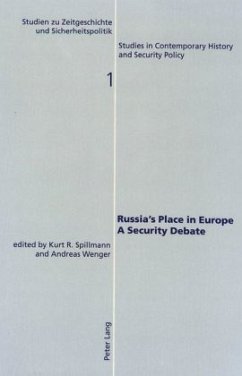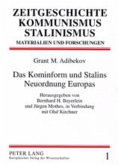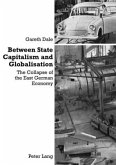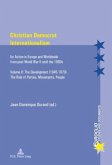The book addresses the role of the Russian Federation within the post-Cold War European security architecture. It assesses the Russian foreign and security policy discourse as well as foreign and security policy making. Rather than confronting "Western" and "Russian" positions, the book provides a forum of debate among Russians , reflecting the authentic character of the internal security dialogue. Ukrainian and Belarussian perspectives are included for additional insight into the CIS dimension of Russian foreign and security policy.
The book contains contributions by well-known analysts of Russian foreign and security policy such as Yevgeniy Bazhanov, Aleksey Filitov, Andrey Kortunov, Igor Maximychev, Tatyana Parkhalina, Sergey Rogov, Anatoliy Rozanov, Dmitriy Trenin and others. The contributions are introduced and commented by the editors.
The book contains contributions by well-known analysts of Russian foreign and security policy such as Yevgeniy Bazhanov, Aleksey Filitov, Andrey Kortunov, Igor Maximychev, Tatyana Parkhalina, Sergey Rogov, Anatoliy Rozanov, Dmitriy Trenin and others. The contributions are introduced and commented by the editors.
"Diese Sammlung erfasst gekonnt die Periode, die 1997 zu Ende ging; sie präsentiert ein kompetentes Bild der Politik Rußlands sowie der Ursachen - politischer, kultureller, und wirtschaftlicher Natur -, die die gegenwärtige Lage prägen. Der Band bietet zudem eine interessante Stimme in der Debatte über den Platz Rußlands in Europa." (Elzbieta Stadtmüller, Journal of European Integration History)
"...für die Diskussion über künftige Sicherheitsstrategien sicher ein nützlicher Band, dem Aufmerksamkeit gebührt." (Jörg Stadelbauer, Osteuropa)
"...für die Diskussion über künftige Sicherheitsstrategien sicher ein nützlicher Band, dem Aufmerksamkeit gebührt." (Jörg Stadelbauer, Osteuropa)




